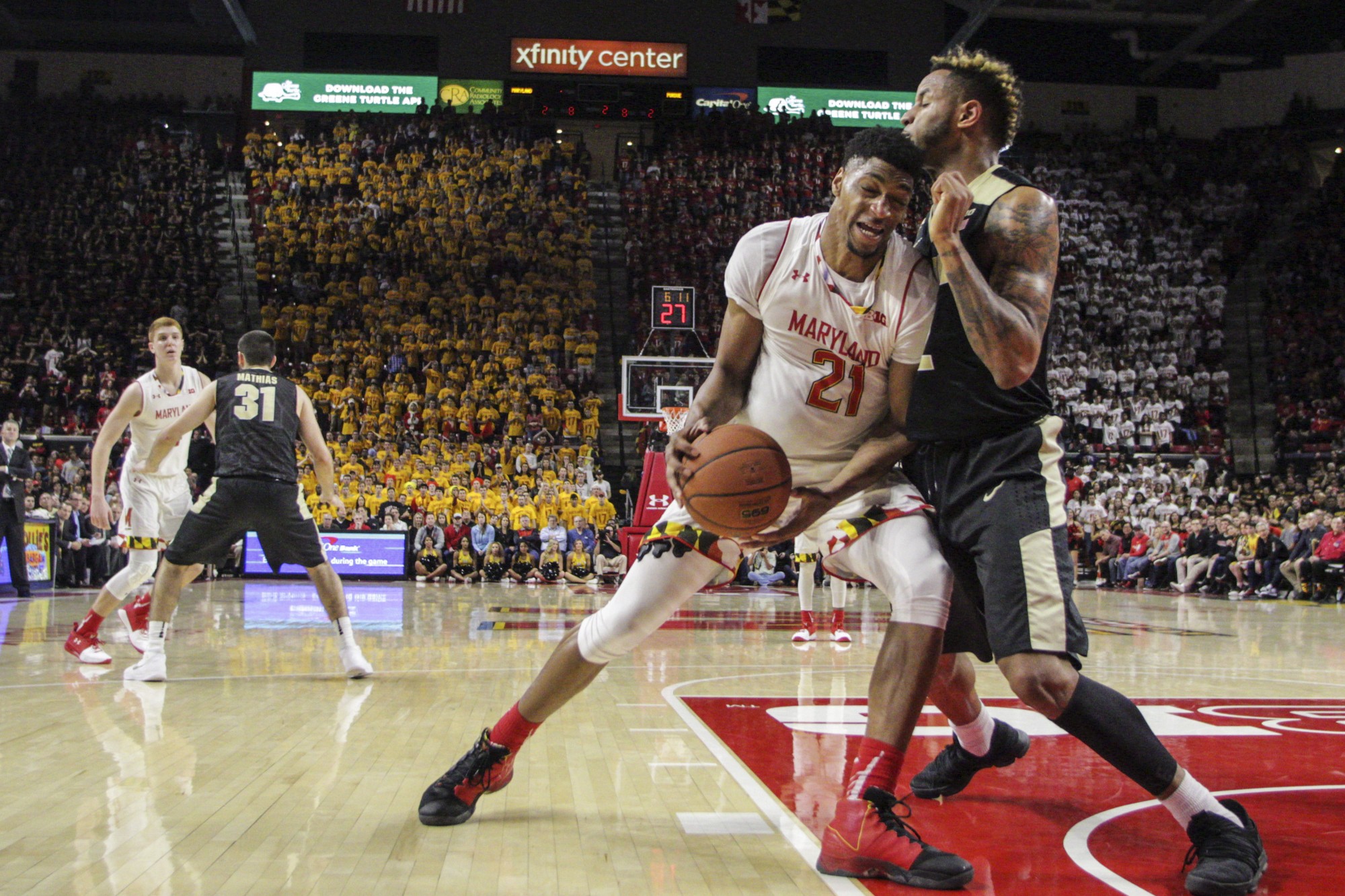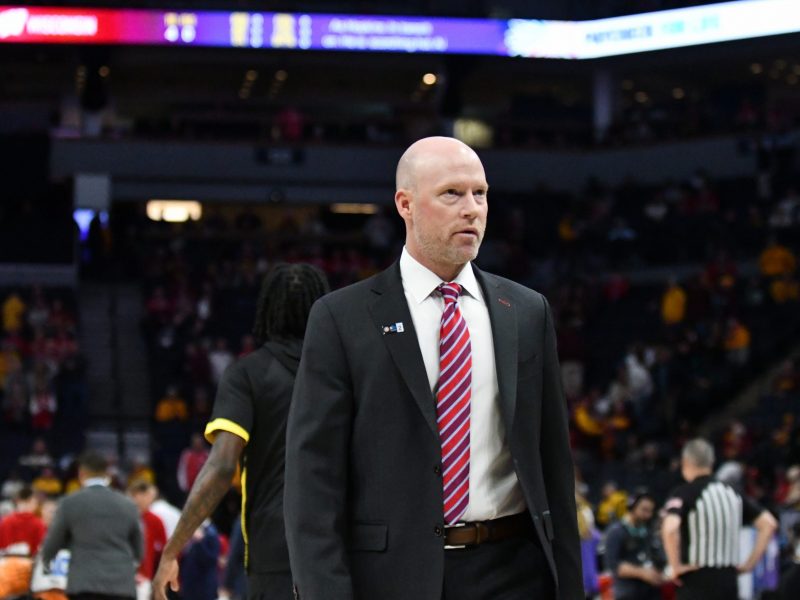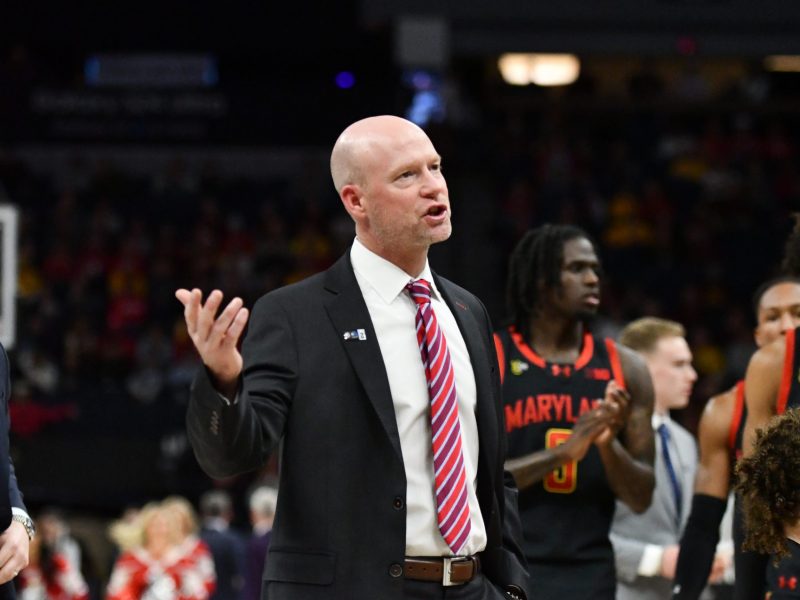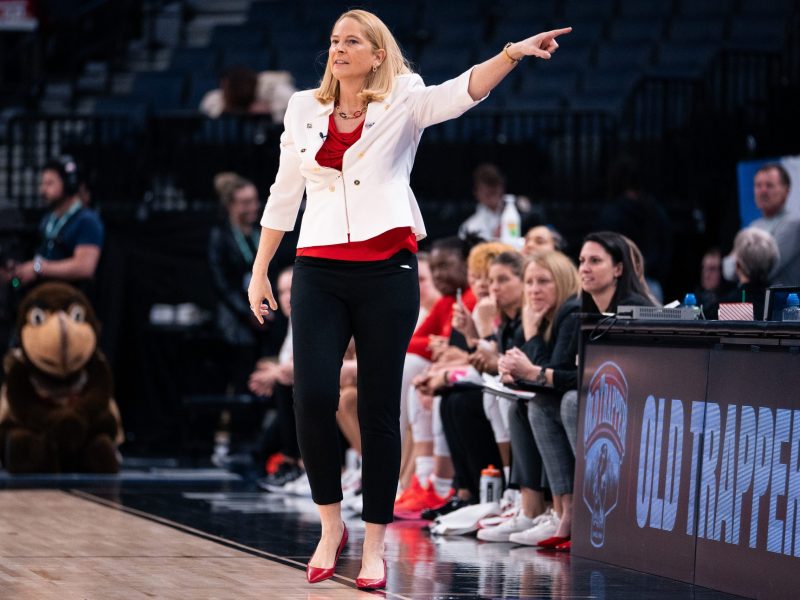The Maryland men’s basketball team kicked off conference play this weekend with two roller-coaster games, an 80-75 loss to Purdue in Xfinity Center and a 92-91 overtime win over Illinois on the road. As their schedule eases up over a five-game non-conference homestand, here’s what the Big Ten foray taught us about the Terps.
Maryland is far from a finished product
Entering this season, the Terps fielded questions about playing Big Ten games in early December, nearly a month earlier than the conference openers in previous seasons.
Maryland’s games featured inconsistent and often downright ugly play from all sides. For a Terps squad still adjusting to the departure of guard Melo Trimble, the lack of preparation for the conference slate seemed particularly harmful.
On Friday against Purdue, the Terps allowed the Boilermakers to open a 14-point lead midway through the first half, which guard Kevin Huerter blamed on a lack of defensive intensity that’s becoming a trend early in games.
Coach Mark Turgeon said the Boilermakers were far more polished than the Terps because Purdue players are older and had extra summer practices. Eventually, he hopes, Maryland’s execution will catch up to experienced teams such as Purdue.
Still, Maryland battled back into the game, held a second-half lead and had a chance to tie the game with fewer than 20 seconds left. That forced Turgeon into a decision of who would take the last shot — it would have been a foregone conclusion with Trimble. Huerter deferred to guard Jared Nickens for the chance to take a shot with the game on the line. Nickens’ 3-pointer was short.
[Read more: Anthony Cowan leads Maryland basketball to 92-91 overtime victory over Illinois]
The Terps reversed the script against Illinois, coming out on fire and leading by 22 points shortly after halftime. Then, their offense went stagnant, shooting 40.7 percent in the second half, and the Illini woke up, hitting 67.9 percent of their second-half shots.
After going down 74-73 with fewer than two minutes left in regulation, Maryland committed four consecutive turnovers and missed three shots in a row. Luckily, Illinois also collapsed down the stretch, notably throwing an inbounds pass down the length of the floor and out of bounds to gift Maryland an extra possession with four seconds left, which let the Terps back into the game.
Anthony Cowan’s sophomore breakout continued
Cowan was the sole reason Maryland had a chance to force overtime against Purdue. He was the Terps’ best player against Illinois, both affirming his promise as Trimble’s replacement, especially late in games.
The sophomore led a comeback in the final minute of Friday’s loss. He scored seven points in 10 seconds, with a pair of tough baskets and a steal of a Boilermakers inbounds pass, to give Maryland the ball down three points.
Against the Illini, he either scored or assisted on 14 of Maryland’s 17 overtime points and had a career-best 27 points.
With the score tied and at one second before a second overtime, Cowan was fouled as he went up for a shot. He drained the first free throw to seal Maryland’s first conference win of the season.
Justin Jackson showed up
Jackson’s struggles early this season have been well-documented. The sophomore, who eschewed the NBA draft this past offseason after a successful freshman campaign, got off to a horrific start shooting the ball this season. Entering the Illinois game, Jackson averaged fewer than nine points per game and was shooting 33.7 percent.
He seemed to break out of that slump Sunday, scoring 20 points on 8-for-13 shooting, his best game of the season in both categories. Huerter insisted Jackson needed to restore his confidence, and his performance against Illinois should contribute to that.
Jackson is coming off a rookie campaign that shot the Toronto native into one of the most highly anticipated players in college basketball. If he lives up to the hype, it would offer the Terps a crucial boost, as Turgeon has said his team will not reach its goals without Jackson playing to his potential.



